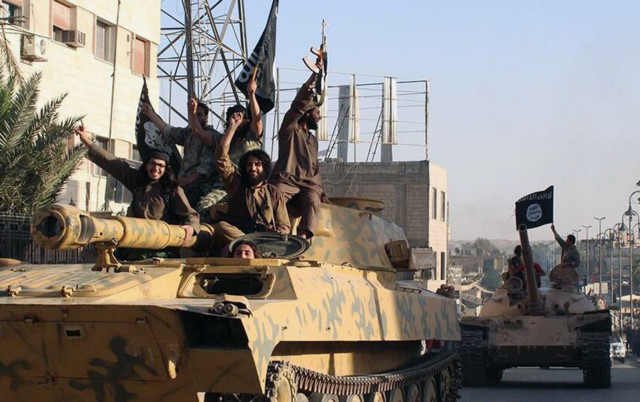
Let’s be honest. The United States has crossed the threshold on Iraq. Americans are in it to salvage the country — again — using their military might.
But the mission has also, very quickly, grown much bigger in less than two weeks. US warplanes are no longer simply helping create escape routes for the Yazidis or protecting American personnel in Arbil in Iraqi Kurdistan. The US is now directly taking on the world’s most militant extremist group, bombing its positions at the Mosul dam and beyond.
And it’s probably only the beginning.
President Barack Obama implied as much last week. The Islamic State of Iraq and the Levant (Isil), is “a savage group that seems willing to slaughter people for no rhyme or reason other than they have not kowtowed,” he told reporters. The United States has a national security interest in making sure “that a group like that is contained, because ultimately they can pose a threat to us.”
The US, however, is already doing more than containing Isil. Washington has now dispatched warplanes to aggressively push back the extremists, and the pretence of doing anything less should end. But so should the illusion about what it will take to achieve that goal. The Operation Without a Name should not be an operation without a well-defined mission — or without a “winning” exit strategy.
Given the human heartache and political headache from the last Iraq intervention, not to mention the mess left behind, Washington needs to be honest upfront in answering basic questions. I’ve spent decades on the ground and in the minutiae of the Middle East, including Iraq, and I can’t yet discern the specifics of Washington’s intentions.
What does “win” actually mean this time around? It’s pretty fuzzy right now. Americans are in that feel-good phase of having helped prevent a genocide. But what’s next specifically — and beyond?
New phase in confronting extremism
An American role is not likely to stop at the Mosul dam, where fighting reportedly resumed a day after Obama said Iraqi forces, with backup from American air power, had reclaimed it.
How long could this mission last, if the Isil does not crumble as quickly as the Iraqi army did? I wouldn’t bet on weeks. Or even months. This is a new phase in confronting extremism.
And, most of all, what are the potential unintended consequences?
Two leap out: The first and obvious danger is that Isil will target Americans, at home and/or abroad. On August 18, Isil boasted on its websites, “America will disappear from the map soon on the hands of the knights of Al Khalifa,” a reference to its illusionary caliphate. An English-language video also warned, “We will drown all of you in blood” in retaliation for US airstrikes. In its first terrorist act against an American, Isil on August 19 beheaded photojournalist James Foley, who had been held for 21 months.
The president pledged on August 20, “When people harm Americans, anywhere, we do what’s necessary to see that justice is done.” He vowed to act against Isil.
The second unintended consequence is that, after three years of avoiding intervention, the US may have effectively crossed the threshold on Syria, because Isil will be a threat to minorities and majorities across the region, as well as American interests, if the group holds any territory. Isil controls almost a third of Syria. It has the oil-rich east and is now pushing toward Aleppo in the north and Damascus in the south. Isil has slaughtered or threatened tribes and minorities in Syria too. Even if US military muscle pushes it back into Syria, Isil forces remain a broader regional threat.
Tragically, given the political polarisation in Washington, especially in an election season, any policy debate over answers to these questions is likely to break down on party lines rather than be framed in terms of what is in everyone’s long-term interests. So we get sound bites rather than solutions to a real national security threat.
— Los Angeles Times
Robin Wright, author of Rock the Casbah: Rage and Rebellion Across the Islamic World, is a distinguished scholar at the US Institute of Peace and the Woodrow Wilson Centre.








